Many Americans now prioritize finding the best CBD to manage anxiety. Recent surveys show that between 14% and 33% of U.S. adults have given CBD a try. This makes sense - anxiety can turn your life upside down and affect everything from your sleep patterns to your personal relationships.
Research suggests CBD might help with anxiety. A 2019 study showed CBD worked better than a placebo for teens dealing with social anxiety. The results look promising. A 2018 study revealed that taking a 300 mg oral dose 90 minutes before public speaking substantially reduced anxiety levels. People often ask about CBD's effectiveness for both anxiety and depression. A survey of over 2,000 people found some interesting results. More than 1 in 6 people used CBD to handle depression, and almost two-thirds said it worked either very well or moderately well.
CBD could be a natural option to help people who struggle with anxiety. The popularity of this remedy keeps growing, but you should know how CBD works in your body. There's also more to learn about what doctors might not tell you about using it.
What is CBD and how does it work for anxiety?
Cannabidiol (CBD) is a natural compound found in Cannabis sativa plants. Unlike tetrahydrocannabinol (THC), CBD doesn't cause psychoactive effects or the "high" that cannabis users experience. CBD has no abuse or dependence potential, which makes it an attractive option to treat anxiety.
Understanding CBD's effects on your brain helps you choose the best product for anxiety. CBD interacts with multiple systems that regulate fear and anxiety. The serotonin system represents one of the main mechanisms. CBD activates serotonin 1A (5-HT1A) receptors that play a significant role in mood regulation. This interaction might explain CBD's benefits for anxiety and depression.
The brain's endocannabinoid system helps maintain balance during stress. CBD boosts this system by preventing anandamide breakdown (an endocannabinoid that promotes feelings of happiness). CBD increases anandamide levels by inhibiting the fatty acid amide hydrolase (FAAH) enzyme and indirectly activates CB1 receptors. This process reduces anxiety-related behaviors.
The Transient Receptor Potential Vanilloid Type 1 (TRPV1) channel affects CBD's impact on anxiety. Moderate doses create anxiolytic effects through 5-HT1A activation, while higher doses may activate TRPV1 channels. This explains the "bell-shaped" response - low to moderate doses reduce anxiety effectively, but higher doses might not work as well.
Proper dosing matters especially when using CBD for anxiety. Research shows doses between 300-600 mg can decrease anxiety during stressful situations like public speaking. All the same, some studies indicate that lower doses of 10 mg/kg might work better than higher doses in animal studies.
Evidence suggests CBD shows promise as a treatment for anxiety disorders through its complex interactions with multiple neural pathways. Most research focuses on acute (short-term) CBD use, with limited studies exploring long-term treatment effects.
What the research really says about CBD for anxiety and depression
Scientific evidence paints a complex picture of CBD's effects on anxiety and depression. The research shows both promising results and significant limitations.
Studies about CBD's impact on anxiety have produced mixed outcomes. A comprehensive analysis of 87 studies revealed CBD had no effect on anxiety in most cases (70.3%). Some research still shows remarkable benefits. People with moderate to severe anxiety saw their symptoms drop by 60% to 70% after taking a high-CBD product for four weeks, according to a 2022 Nature publication. A meta-analysis also demonstrated CBD's substantial impact on anxiety (Hedges' g = −0.92), particularly in specific situations.
The right dosage plays a crucial role in how well CBD works. Clinical studies have produced conflicting results despite the "bell-shaped" response curve mentioned earlier. CBD doses of 300mg helped reduce anxiety during public speaking tests, while 150mg and 600mg didn't work. Long-term treatment showed different results - anxiety reduction occurred with daily doses between 18-800mg.
Research on depression remains scarce. Animal studies, about two dozen of them, suggest CBD can act as an antidepressant. CBD seems to create quick and lasting antidepressant-like effects by activating 5HT1A serotonin receptors. A large survey of over 2,000 people found that more than one-sixth used CBD to treat depression. Nearly two-thirds of these users reported good or moderate success.
Most evidence comes from animal studies or small human trials. Scientists currently conduct nearly 200 clinical trials related to CBD. These studies look at its effectiveness against PTSD, anxiety disorders, and depression. The scientific community remains careful about making strong claims until more reliable human studies finish.
What doctors don’t always tell you about using CBD
Healthcare providers still hesitate to recommend the best CBD for anxiety, despite its growing popularity. Their reluctance comes from limited training in cannabinoid medicine and changes in regulations.
Your doctor might not mention the entourage effect during consultations. This theory suggests CBD works better among other cannabis compounds than by itself. Full-spectrum products combine multiple cannabinoids and terpenes that work together and could offer better benefits than pure CBD isolate.
There's another reason you should know about - CBD can interact with many medications through liver enzymes that break down drugs. It temporarily deactivates cytochrome P450 enzymes and might increase blood levels of certain medications. You should always ask your doctor if you take other medications, particularly blood thinners, anti-seizure drugs, or antidepressants.
Medical consultations rarely cover the quality differences between CBD products. Third-party testing becomes vital since FDA regulations remain limited. You need certificates of analysis that verify cannabinoid content and confirm products don't contain pesticides, heavy metals, or microbial contaminants.
Doctors might not explain how CBD absorption varies based on consumption method. Sublingual tinctures act faster than capsules, while edibles last longer. Vaping gives almost immediate results but could raise breathing concerns.
Your body's chemistry plays a big role. CBD's effectiveness varies by a lot between people due to genetic differences in endocannabinoid systems. Finding the right dose takes some trial and error - start low and slowly increase until you see results.
The timeline for CBD benefits needs attention too. Some effects happen quickly, but many people see better results after several weeks of regular use. This means patience matters during the first phase of treatment.
Conclusion
Research shows CBD could be a natural way to deal with anxiety. Studies reveal how it works with important brain systems, especially with serotonin receptors and endocannabinoid mechanisms. The results can vary by a lot from person to person, so you need a personalized approach to find relief.
You should think about several things to find the right CBD for anxiety. Full-spectrum products might work better because of the entourage effect. High-quality products tested by third parties are vital for safety and effectiveness. Your choice between sublingual tinctures for quick relief or edibles for longer-lasting effects should match what you need.
Getting started with CBD treatment needs patience. Some people feel better right away, while others see improvements over weeks of regular use. The right dose makes a big difference, and research shows it's different for everyone. People get the best results when they start with small doses and slowly increase them.
Make sure to ask your healthcare providers about mixing CBD with other medications. CBD usually works well for most people, but it can change how your body handles certain medicines. More research will help create better guidelines about using CBD for anxiety and depression.
CBD works best as part of an all-encompassing approach to mental wellness. People who combine it with therapy, lifestyle changes, and traditional treatments when needed get great support for natural anxiety relief. More research keeps showing that CBD is worth thinking about as part of dealing with anxiety in our increasingly stressful world.
Key Takeaways
Understanding CBD's potential for anxiety relief requires separating promising research from marketing hype, while recognizing important limitations doctors often don't discuss.
-
CBD shows real promise for anxiety: Studies demonstrate 60-70% symptom reduction in moderate to severe cases, with 300mg doses proving effective for social anxiety situations.
-
Quality and dosage are critical factors: Third-party tested, full-spectrum products work better than isolates, with optimal doses varying widely between individuals (18-800mg daily range).
-
Drug interactions require medical oversight: CBD affects liver enzymes that metabolize medications, potentially altering blood levels of antidepressants, blood thinners, and seizure medications.
-
Results take time and consistency: While some experience immediate relief, most people notice cumulative benefits after several weeks of regular use with proper dosing.
- Research limitations remain significant: Most evidence comes from animal studies or small human trials, with FDA regulation still limited and product quality varying dramatically.
The key to success lies in starting with low doses, choosing high-quality products, consulting healthcare providers about interactions, and maintaining realistic expectations about timeframes for improvement.

